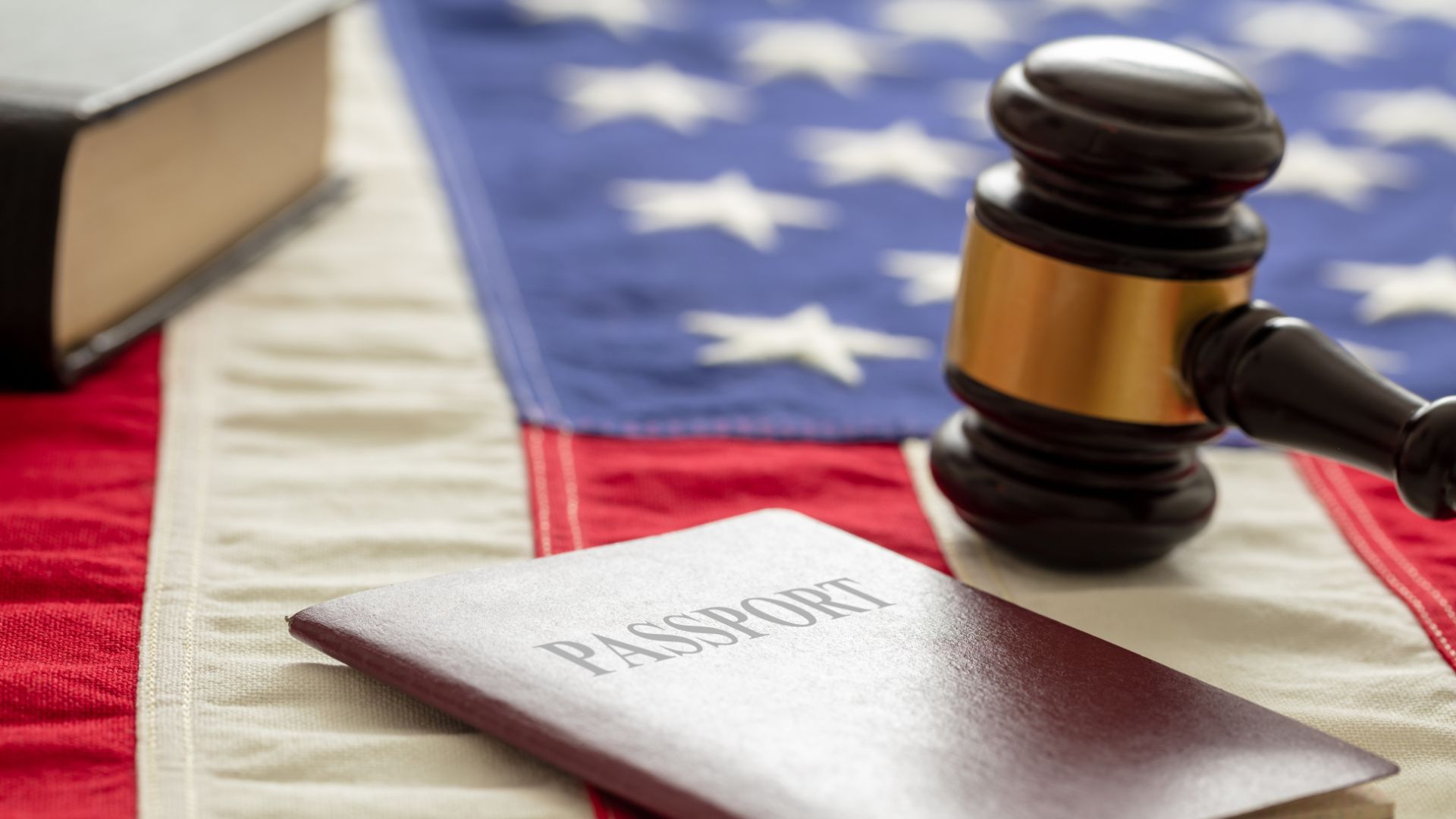Applying for U.S. citizenship is an exciting milestone, but it also comes with strict eligibility requirements. One of the most important factors USCIS reviews during the naturalization process is your criminal history. Even minor offenses can raise questions, and more serious convictions may prevent you from becoming a U.S. citizen altogether. Understanding how criminal conduct affects your application can help you prepare, gather the right documents, and seek legal support when needed.
At Rebecca Black Law, P.A., we guide clients through complex naturalization cases, including those involving past arrests or convictions. A clear understanding of how USCIS evaluates criminal history can make a significant difference in your outcome.
The Role of Good Moral Character in Naturalization
When you apply for citizenship, USCIS evaluates whether you meet the requirement of good moral character. This standard generally covers the five years before you file your N-400, or three years if you are applying based on marriage to a U.S. citizen. However, very serious offenses can be considered at any point in your life, no matter how long ago they occurred.
Good moral character is a broad concept. USCIS reviews your honesty, your compliance with U.S. laws, and whether your behavior shows responsibility and respect for your community. Criminal offenses are one of the most common reasons applicants struggle to meet this requirement. Even if an offense seems small, USCIS may view it as evidence of poor judgment or disregard for the law.
Crimes That Permanently Bar Citizenship
Some criminal convictions permanently prevent you from ever becoming a U.S. citizen. These are usually serious offenses that USCIS categorizes under aggravated felonies. Offenses such as murder, sexual abuse of a minor, drug trafficking, and certain forms of violent crimes fall into this category. If a permanent bar applies, USCIS will deny your application regardless of how long ago the offense occurred or how much rehabilitation you have shown since then.
A permanent bar is extremely difficult to overcome. In many cases, individuals with an aggravated felony cannot naturalize and may face additional immigration consequences. Anyone with a conviction that might fall into this category should seek immediate legal guidance before filing an application.
Crimes That Create a Temporary Bar to Good Moral Character
Not all criminal issues lead to a permanent bar. Many offenses instead create a temporary bar that prevents naturalization during the statutory period. This means you may be able to apply in the future, but only after enough time has passed to show rehabilitation.
Crimes that can create a temporary bar include DUI convictions, domestic violence, theft offenses, and certain drug-related charges. In some cases, even a pattern of smaller violations, such as repeated driving without a license, can raise concerns. USCIS focuses on whether the conduct occurred during the statutory period and whether the applicant has demonstrated improvement since then. Applicants with temporary bars often benefit from waiting a little longer so they can present stronger proof of good moral character.
Arrests Without Conviction and Their Impact
Even if you were never convicted, USCIS still requires you to disclose all arrests, citations, and charges. An arrest alone does not automatically harm your eligibility, but USCIS will review the details and may request court documents, police reports, or evidence showing the case was dismissed. Failing to provide complete and truthful information can be far more damaging than the arrest itself.
Honesty is critical. USCIS places great weight on truthful disclosure, and failing to mention an arrest may be interpreted as misrepresentation, which can itself lead to denial.
How Immigration Consequences Interact with Criminal Issues
Criminal history does not affect naturalization in isolation. Many immigrants face additional immigration consequences from past offenses. Some crimes make a person deportable, others make them inadmissible, and some do both. If you have a conviction that triggers deportation grounds, USCIS may place you in removal proceedings instead of granting citizenship.
This is why filing without proper legal analysis can be risky. A conviction that seems minor under state law may have significant consequences under federal immigration law. At Rebecca Black Law, P.A., we regularly assist clients whose naturalization applications require careful strategy due to past criminal issues. Understanding the immigration impact of a conviction is essential before submitting your N-400.
Rehabilitation and Positive Evidence Can Strengthen Your Case
For cases involving less serious offenses, evidence of rehabilitation can play an important role. USCIS wants to see that you have taken steps to address past mistakes and that your current behavior reflects good moral character. This may include completing probation, attending counseling or treatment programs, maintaining stable employment, participating in community activities, or providing letters of support from employers and community members.
While rehabilitation alone cannot overcome a permanent bar, it can be persuasive in cases involving temporary bars or isolated past mistakes. Each case is different, and presenting the right evidence can significantly increase your chances of approval.
Why Legal Guidance Matters When You Have a Criminal Record
Naturalization is one of the most meaningful steps in your immigration journey, but criminal history can make the process complicated. A conviction, even if it is decades old, deserves careful review before filing. Mistakes on the application or misunderstanding how USCIS interprets your record can lead not only to denial but in some cases to removal proceedings.
Rebecca Black Law, P.A. is a full-service immigration firm in Jacksonville dedicated to helping clients with complex naturalization and citizenship cases. Our personalized approach means we take time to understand your background, review your criminal record in detail, and build a strategy that protects your future. Whether you are eligible now or need guidance on when to apply, we can help you move forward with confidence.
Schedule a Consultation to Review Your Eligibility
If you have a criminal history and want to apply for U.S. citizenship, do not take risks. The laws are complex, and the consequences of filing without proper guidance can be serious. Our team at Rebecca Black Law, P.A. can help you understand your options, evaluate any immigration risks, and prepare a strong application when the time is right.
Contact our Jacksonville office today to schedule a consultation and take the next step toward achieving your American citizenship.




